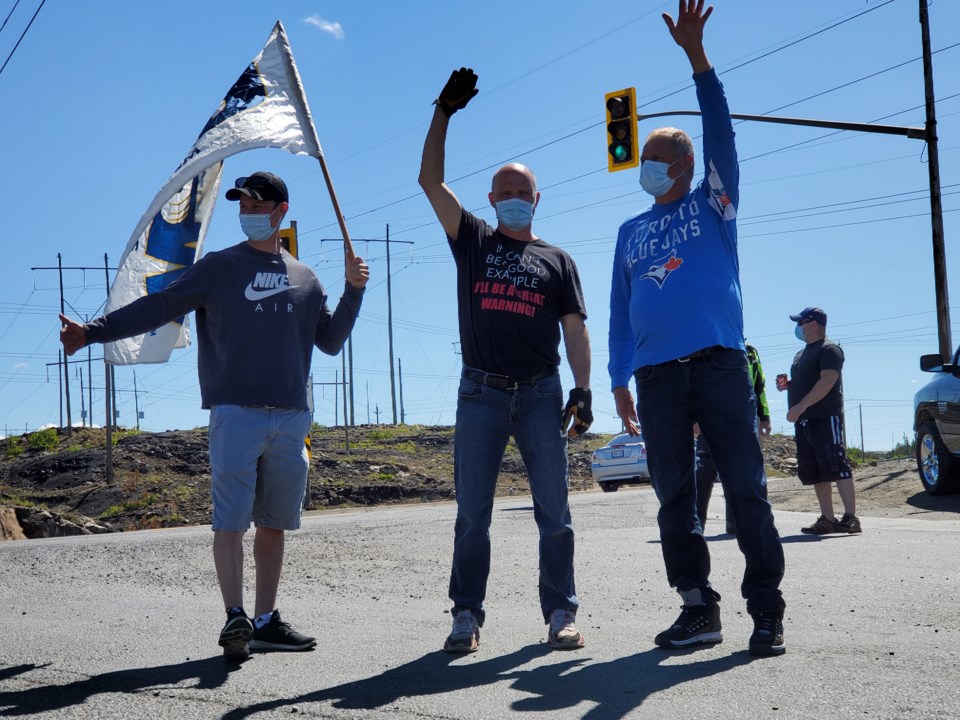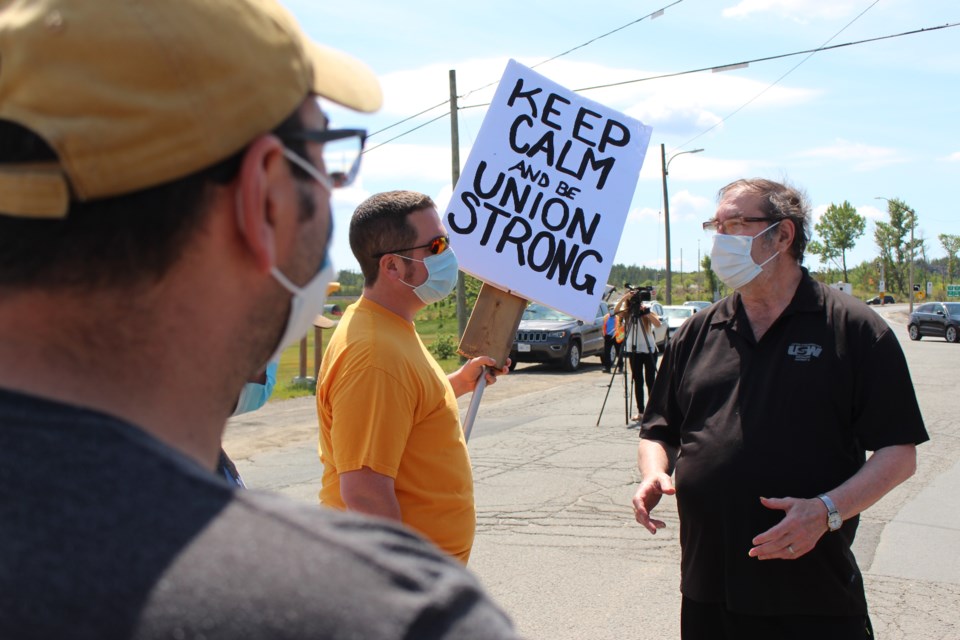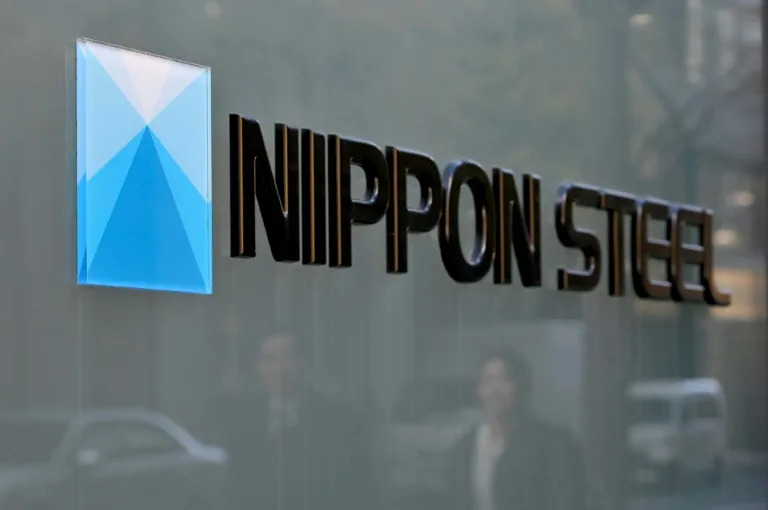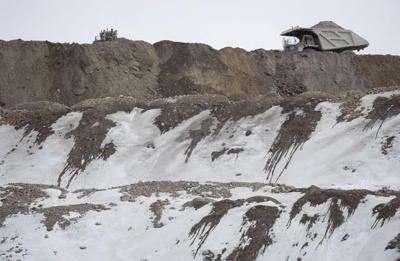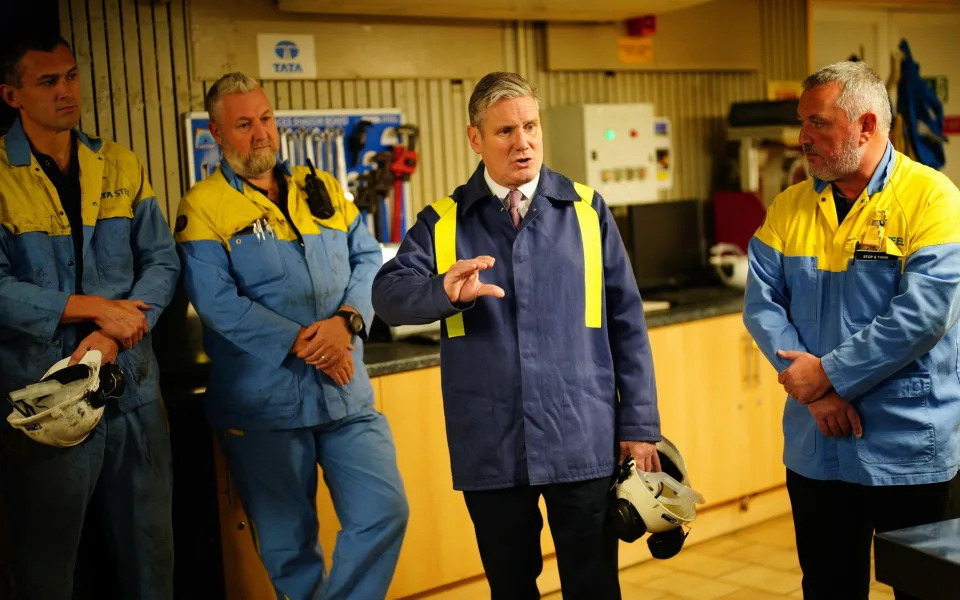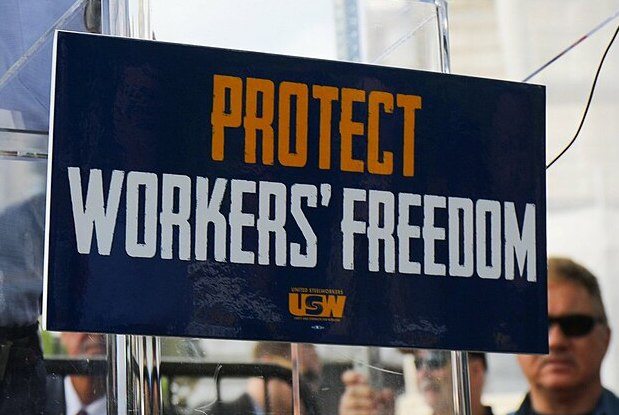
Photograph Source: United States Senate – Public Domain
Christopher Betterley arrived at the Altamont Veterans Facility in Buffalo, New York, a few years ago needing a home, a haircut, and a fresh start after treatment for alcohol use.
He saw a sign tacked to the shelter’s dining room wall advertising jobs at the nearby Sumitomo tire plant, so he cleaned himself up, went for an interview, and quickly impressed both management and leaders of United Steelworkers (USW) Local 135L.
But while the new job opened doors for Betterley, it was really union solidarity that saved him. He learned the trade from longtime union tire builders, leaned on the USW family that rallied around him, and pieced his life back together.
As Betterley discovered, unions lift up all workers. They fight for fair treatment and look out for the most vulnerable. They provide a path forward.
“When they took a chance on me, it really was them giving me a second shot,” explained Betterley, who deployed to Afghanistan during his six-year year stint in the New York Army National Guard.
“I’m not shy about any of this. It’s what happened,” continued Betterley, who’s proud of his military service but acknowledged that the experience contributed to the tough times he encountered later on.
“Things weren’t very great in my life prior to me starting to work with the Steelworkers,” he said. “I was hungry to get back on my feet and turn things around for myself. Working with the Steelworkers union gave me an opportunity to be able to do that.”
Betterley, a New York native, never worked in a manufacturing environment or belonged to a union before. But Local 135L members showed him the ropes.
They explained the power of collective action and outlined the union contract, which makes the workers at Sumitomo some of the best-compensated tire makers in the world.
Union colleagues also ensured that Betterley received steel-toed boots and other personal protective equipment to keep him safe on the job. They helped him secure overtime hours and access the additional skills that paved the way to even higher wages.
They shared Betterley’s joy when he moved out of the shelter several months after starting at Sumitomo.
“I was able to go from homeless vet to getting my own one-bedroom apartment,” Betterley recalled. “I bought a car to get back and forth to work. I saved up.”
And he was just getting started.
Betterley continued banking his pay and eventually bought a house in Buffalo’s northern suburbs, relying on the advice of co-workers who pointed out that he’d get less lake-effect snow there than in southern communities.
He also advanced to a highly skilled position requiring him to work in various parts of the plant and volunteered to serve as a union steward for his co-workers. He says the work and camaraderie give him “a sense of purpose, drive, and direction,” and he enters the plant thinking, “We’re going to get some great stuff done.”
“I’m a big guy, and it really seems to fit me,” he said. “I like working with my hands. I like using my body. I couldn’t picture myself working in a place where I’d be happier.”
“It has that kind of familial feel to it,” added Betterley. “We all know we’re in this together. We know we have a job to do. It definitely feels like being part of a community.”
Betterley’s journey is remarkable. But unions extend the same empowerment and solidarity to all workers.
Unions provide a bulwark against discrimination, sexual harassment, and favoritism, ensuring workers from every background feel welcome and valued.
Their fight for a level playing field helps to eradicate gender and racial pay gaps as well as wage disparities holding down workers with disabilities. For example, unions not only boost wages for veterans and other workers with disabilities by as much as 30 percent but also give them a voice they’d otherwise lack on the job.
“Everyone is equal under our collective bargaining agreement,” observed Local 135L President Tom O’Shei, noting that his members share the same opportunities for skill-building and advancement in the plant.
But union power transcends the plant gate. Union members use their skills and solidarity to build stronger communities.
“Being a good union member not only means looking out for one another on the plant floor. It also means being a good member of the community. We’re fortunate enough to have good jobs. Not everybody has that,” explained O’Shei, whose local won a Jefferson Award for community service projects.
Betterley is among those eager to share what he has with others.
He joined the local’s Veterans of Steel chapter, which provides a support network for workers with military service. He helped to raise funds for the Veterans Assistance Local Ongoing Recognition (VALOR) food pantry, serving veterans in Tonawanda. And he threw himself into a clothing and linen drive for the Altamont Veterans Facility.
A co-worker unfamiliar with Betterley’s story marveled at his passion for Altamont and asked about it. “It’s because I used to live there,” Betterley replied.
He’s determined to become more active in the union and provide the same helping hand to co-workers that Local 135L members extended to him.
He realized how important it was not only to have others support him but to believe in him at the time he needed it most.
“It seems like they had a bunch of faith in me—so I did, too,” Betterley said.
This article was produced by the Independent Media Institute.

